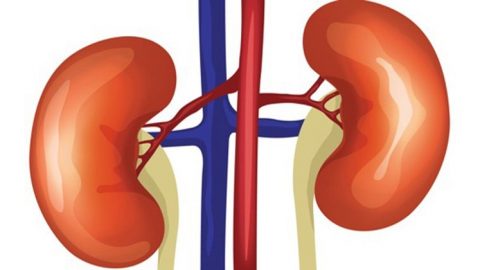Baby Khoi (2 years old, Hanoi) has a history of delayed meconium after birth and was diagnosed with intestinal obstruction. Three weeks after birth, the baby had difficulty passing stools, often required honey as enema to relieve constipation. During weaning period, with lots of vegetable and yogurt intake, he passes stool more easily but remains constipated and requires enemas. Ms. Thanh – his mother noticed that her son always spends lots of time in the toilet.
Though she has realized the problem, she still waits for the condition to resolve by itself without any intervention. However, this condition did not improve, the child continued to have abdominal pain, loss of appetite, and fatigue. At this point, Ms. Thanh decided to take her child the National Children’s Hospital. After examining and getting an X-ray of the colon, baby Khoi was diagnosed with megacolon and required surgery.According to Dr Tran Anh Quynh, MD.PhD – Deputy Head of General Surgery Department, National Children’s Hospital, on the film, the child have narrow rectum, dilated Sigma colon, stagnation of stools, ratio of rectal diameter and Reverse Sigma. The patient underwent fecal enema and surgical resection of 27 cm of dilated colon, of which 7 cm of colon ganglion cells are absent. “It is such a fortunate that the family has overcome their psychological barriers to let the boy receive treatment.” said Dr. Quynh.After 2 weeks of surgery, the child was scheduled to have a follow-up appointment and required anal dilation every day at a certain time, for over a month. The conduct of anal dilatation helps the colon-anus junction to be soft and avoid narrow scars, and helps the child create a bowel reflex.During the first month after surgery, there were episodes of loose stools. He was stable with Oresol intake. 6 weeks after surgery and anal dilation, he manages to pass stools easily once a day, with soft and moldy stools. He has gained 2 kg and the quality of life is improved.
Early treatment of constipation helps improve children’s quality of life
Assoc. Prof. Dr. Pham Duy Hien – Deputy Director of the National Children’s Hospital, Head of General Surgery Department said that there are many causes of constipation in infants and children, which can be categorized into two groups. One is functional constipation due to lack of fiber, drinking less water, fear of going to the toilet, taking medicine… The other is constipation caused by a physical disease: hypothyroidism, nerve damage, congenital megacolon. (Megacolon – enlarged colon due to the absence of nerve cells) ectopic or anal stenosis, and exocrine fibrosis…Children with constipation often have some symptoms such as: number of bowel movements less than 3 times/week; difficulty defecation or straining; anal pain during defecation, sometimes with blood around the stool due to anal fissures; dry, lumpy solid feces.Children may have additional symptoms such as: abdominal pain around the navel, abdominal distension, loss of appetite, fatigue, malnutrition, behavior changes. Long-term constipation in children creates large, solid, stagnant stools in the rectum that can cause fecal incontinence, sometimes a little loose stool leaks from the rectum and stains the underwear.Doctors recommend that parents take their children to see a doctor as soon as the child has the following symptoms: delayed meconium 24 hours after birth, abdominal distension; constipation persists for more than a week, dietary changes have no effect; constipation affects digestion: poor appetite, weight loss, malnutrition with vomiting.In addition, parents should also pay attention to take the child to the doctor when the child shows unusual signs such as: abdominal pain, abdominal distension, pain in the anal region when defecating, hemorrhoids, anal fissure; accompanied by symptoms such as fatigue, weight loss, anorexia, fever, vomiting, bloody stools, etc.





